Anjar in Gujarat, one of the oldest towns in Kutch, is a captivating blend of history, culture, and craftsmanship. Known for its centuries-old temples, bustling local bazaars, and vibrant handicraft traditions, this heritage-rich destination offers a glimpse into the region’s timeless charm. Visitors can explore historic sites like the Jesal-Toral Samadhi, enjoy authentic Kutchi cuisine, and shop for exquisite hand-embroidered textiles. With its warm hospitality and deep-rooted cultural values, Anjar is the perfect getaway for travelers seeking both heritage exploration and authentic local experiences in Gujarat.
Discover the Rich Heritage and Attractions of Anjar City
Anjar City, a historical treasure in the Kutch district of Gujarat, is renowned for its rich heritage and captivating attractions. This vibrant city offers visitors a glimpse into its storied past through its stunning architecture, unique culture, and lively festivals. The charm of Anjar City lies not only in its historical significance but also in its ability to showcase the diverse traditions that have shaped it over the centuries.
As you explore it, you’ll encounter magnificent structures that tell tales of its glorious history. The Anjar Fort stands tall as a symbol of resilience, while the intricate havelis reflect the artistic prowess of local craftsmen. The Swaminarayan Temple, adorned with exquisite carvings, highlights the religious significance of Anjar City, drawing devotees and tourists alike.
Cultural experiences in it are abundant, with festivals such as Rath Yatra and Kutch Mahotsav providing a vibrant atmosphere filled with music, dance, and local cuisine. The culinary delights of Anjar City, including dishes like Kutchhi Dabeli and Dhokla, offer a taste of the region’s rich flavors.
Moreover, the unique handicrafts produced by local artisans, such as Ajrakh printing and Kutch embroidery, make for perfect souvenirs that reflect the craftsmanship of Anjar City. Engaging with the friendly locals enhances the experience, allowing visitors to immerse themselves in the traditions and stories that define Anjar City.
| Reason | Highlights |
|---|---|
| 1. Historical Significance | – Dates back to the 16th century as a trade hub – Unique regional architecture – Jesal-Toral Samadhi and Anjar Fort |
| 2. Architectural Marvels | – Blend of Hindu & Islamic styles – Swaminarayan Temple, Jain Temples |
| 3. Culture & Festivals | – Rath Yatra procession – Kutch Mahotsav showcasing crafts, cuisine, and performances |
| 4. Culinary Delights | – Local dishes like Dhokla, Kutchhi Dabeli |
| 5. Unique Handicrafts | – Ajrakh printing, Kutch embroidery |
| 6. Nearby Attractions | – Kutch Desert for stargazing – Bhuj with Aina Mahal and Kutch Museum |
| 7. Warm Hospitality | – Community tours, local homestays |
| 8. Ecological Diversity | – Birdwatching in wetlands – Nature trails around Kutch |
| 9. Art & Music Scene | – Local art galleries – Folk music performances |
How to Reach:
| Mode of Transport | Details | Travel Time / Distance | Highlights |
|---|---|---|---|
| By Air | Nearest airport: Bhuj Airport (BHJ) | ~30 km from Anjar (40–45 mins by taxi/bus) | Regular flights from Ahmedabad, Mumbai, etc. |
| By Train | Anjar Railway Station on Gandhidham–Bhuj route | Direct trains from Bhuj, Gandhidham, Ahmedabad | Convenient and budget-friendly travel option |
| By Road | Connected via Gujarat’s road network | 10 km from Gandhidham, 40 km from Bhuj, 350 km from Ahmedabad | GSRTC buses, private taxis, self-drive routes |
| By Bus | State-run and private buses from major cities | Overnight buses from Ahmedabad available | Frequent services from Rajkot, Bhachau, Bhuj |
1. Historical Significance: Anjar in Gujarat
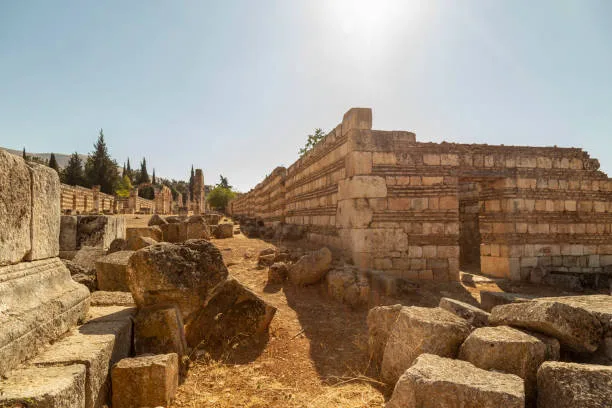
Anjar City has a storied past, dating back to the 16th century when it served as an important trade hub. Its strategic location facilitated commerce between various regions, allowing for the flourishing of diverse cultures. The remnants of this history are evident in its architecture, with many buildings reflecting traditional styles that are unique to the region.
Key Attractions:
- Anjar Fort: Built in the 16th century, this fort showcases remarkable architecture and offers stunning views of the city.
- Buddhist Stupas: The remnants of ancient Buddhist stupas nearby reflect the influence of Buddhism in the region, providing insights into its historical significance.
2. Architectural Marvels
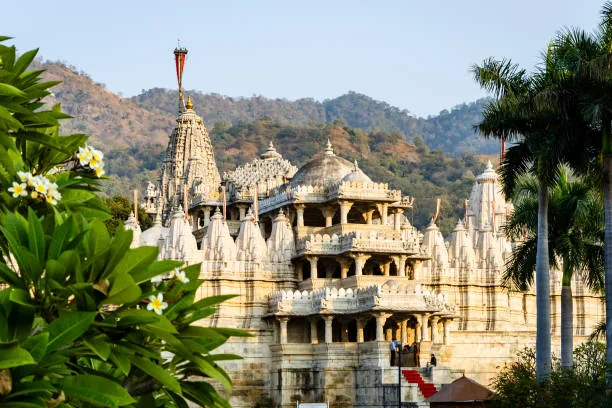
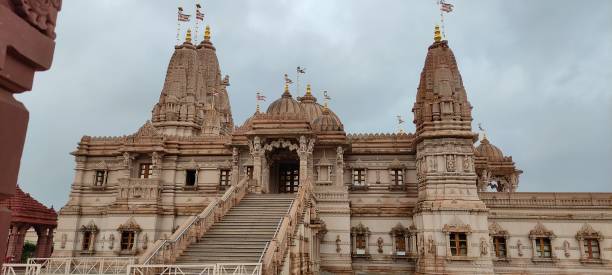
One of the most striking features of Anjar City is its unique architecture. The city is known for its intricate havelis and temples, showcasing a blend of Hindu and Islamic architectural styles.
Notable Structures:
- Swaminarayan Temple: A masterpiece of craftsmanship, this temple is dedicated to Lord Swaminarayan and is adorned with beautiful carvings.
- Jain Temples: The Jain community has left an indelible mark on Anjar’s architecture, with temples that feature detailed sculptures and serene ambiance.
3. Vibrant Culture and Festivals
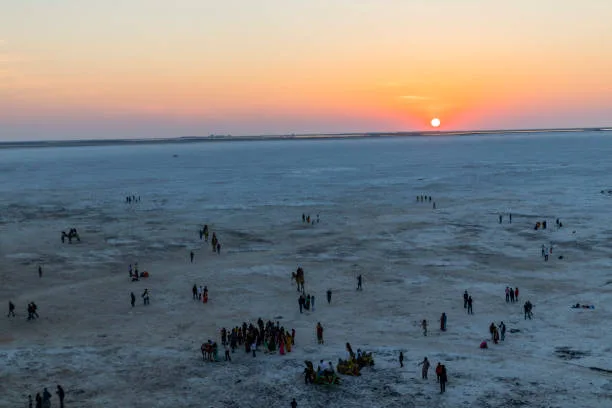
Anjar City is a melting pot of cultures, which is vividly displayed during its festivals. The city hosts numerous celebrations throughout the year, each offering a glimpse into the local customs and traditions.
Must-Visit Festivals:
- Rath Yatra: This grand procession celebrates Lord Jagannath, attracting devotees and tourists alike.
- Kutch Mahotsav: A festival that showcases the art, culture, and crafts of Kutch, featuring performances, exhibitions, and local cuisine.
4. Culinary Delights
No visit to Anjar City is complete without indulging in its culinary offerings. The city is famous for its traditional Kutch cuisine, which is characterized by rich flavors and unique ingredients.
Local Specialties:
- Dhokla: A steamed snack made from fermented rice and chickpea batter, it’s a must-try.
- Kutchhi Dabeli: A spiced potato mixture served in a bun, topped with chutneys and pomegranate seeds, this street food is a favorite among locals.
5. Unique Handicrafts
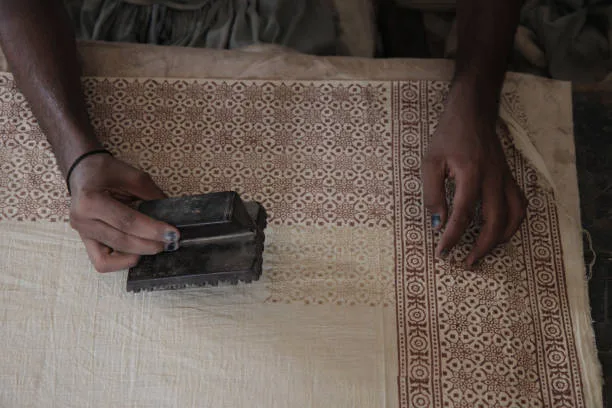
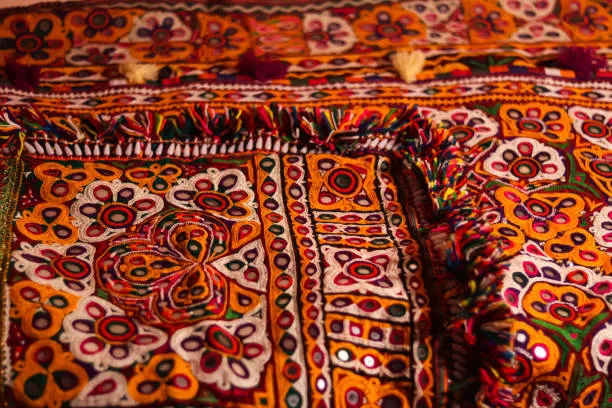
Anjar City is renowned for its handicrafts, particularly its textiles and embroidery. The local artisans use traditional techniques passed down through generations to create stunning pieces.
Craft Highlights:
- Ajrakh Printing: This traditional block-printing technique produces beautiful patterns on fabric, making it a sought-after souvenir.
- Kutch Embroidery: Known for its vibrant colors and intricate designs, Kutch embroidery is a testament to the region’s craftsmanship.
6. Nearby Attractions
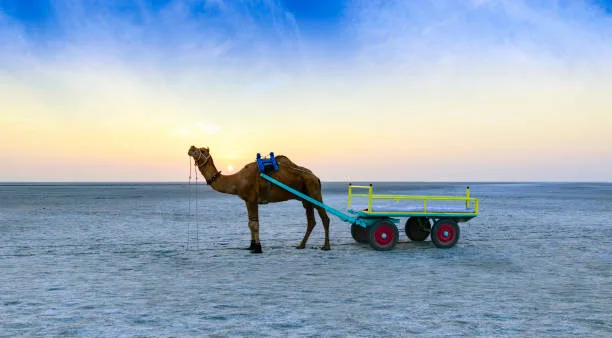
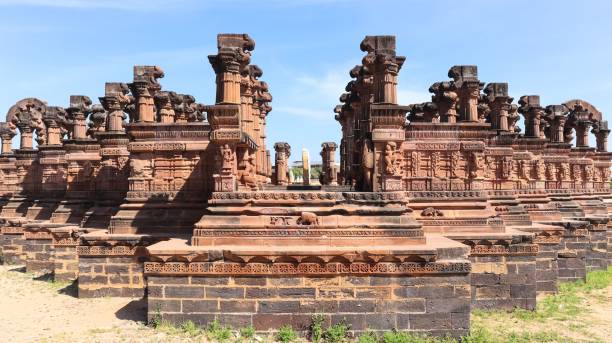
While Anjar City itself is a treasure trove of cultural and historical experiences, its proximity to other notable attractions enhances its appeal.
Explore These Nearby Gems:
- Kutch Desert: Known for its mesmerizing white salt desert, this is a fantastic spot for stargazing and experiencing local culture.
- Bhuj: Just a short drive away, Bhuj offers its own set of historical sites, including the Aina Mahal and Kutch Museum.
7. Warm Hospitality
The people there are known for their warm hospitality, making visitors feel right at home. Engaging with locals offers a unique perspective on the culture and history of the region.
Local Experiences:
- Community Tours: Participate in guided tours led by locals to understand the traditions and history of Anjar City more intimately.
- Home Stays: Consider staying with a local family to immerse yourself in daily life and customs.
8. Ecological Diversity
Anjar City is not just rich in culture and history; it also boasts ecological diversity. The surrounding areas feature various ecosystems, making it an ideal spot for nature lovers.
Nature Highlights:
- Birdwatching: The wetlands near Anjar attract various migratory birds, providing excellent opportunities for birdwatching.
- Nature Trails: Explore the natural beauty of the Kutch region through well-marked trails that showcase its flora and fauna.
9. Art and Music Scene
Anjar City has a vibrant art and music scene that reflects the diverse cultural heritage of the region. Local artists often showcase their work in galleries, and traditional music performances can be found throughout the year.
Artistic Experiences:
- Local Art Galleries: Visit galleries that display works by regional artists, often inspired by Kutch’s landscape and culture.
- Folk Music Performances: Enjoy live performances of traditional Kutch folk music, which provide an engaging experience of local culture.
Best Time to Visit:
Planning a trip to Anjar? Here’s a seasonal breakdown to help you choose the perfect time for your visit:
| Season | Months | Temperature Range | Travel Experience & Highlights |
|---|---|---|---|
| Winter | October – February | 12°C to 28°C | Ideal for sightseeing, exploring temples, markets, and attending the Rath Yatra Festival |
| Summer | March – June | Up to 40°C | Hot afternoons; best for early morning or evening strolls. Limited comfort for daytime travel |
| Monsoon | July – September | Mild to moderate rain | Lush landscapes, fewer tourists, but occasional showers may affect travel plans |
Also Visit These Rich Tapestry of Gujarat :
Conclusion
Anjar is more than just a historic town in Kutch — it’s a cultural gem that beautifully blends ancient heritage, vibrant festivals, spiritual landmarks, and traditional craftsmanship. Whether you’re exploring its age-old temples, experiencing the lively Rath Yatra, or shopping for unique handicrafts, Anjar offers travelers an authentic glimpse into Gujarat’s rich legacy.
With its easy connectivity, pleasant winter climate, and warm hospitality, Anjar is an ideal destination for history enthusiasts, cultural explorers, and spiritual seekers alike. If you’re planning a Gujarat trip, don’t miss out on this hidden treasure — Anjar promises experiences that stay with you long after your journey ends.
FAQs
1. Where is Anjar located in Gujarat?
Anjar is a historic town in the Kutch district of Gujarat, situated about 40 km from Bhuj and 10 km from Gandhidham.
2. Why is Anjar famous?
Anjar is known for its ancient temples, Jain shrines, traditional handicrafts, fairs, and historic Rath Yatra festival that draws devotees from across India.
3. What is the best time to visit Anjar?
The ideal time to visit Anjar is October to March, when the weather is cool and comfortable for sightseeing.
4. How can I reach Anjar?
You can reach Anjar by air via Bhuj Airport (30 km away), by train through Anjar Railway Station, or by road from Gandhidham, Bhuj, and Ahmedabad.
5. Which is the nearest airport to Anjar?
The nearest airport is Bhuj Airport (BHJ), about 30 km away, with flights from Ahmedabad, Mumbai, and other major cities.
6. What is the nearest railway station to Anjar?
Anjar has its own railway station, connecting it to Bhuj, Gandhidham, and Ahmedabad.
7. What are the top attractions in Anjar?
Some popular attractions include Jesal Toral Samadhi, Madhavrai Temple, Jain Derasar, Varsamedi Village, and local handicraft markets.
8. Is Anjar a good place for shopping?
Yes, Anjar is famous for handmade textiles, embroidery, brass and copper items, and traditional Gujarati handicrafts.
9. Which festivals are celebrated in Anjar?
The most popular is the Rath Yatra Festival, along with local fairs and Navratri celebrations that showcase Gujarat’s culture.
10. How many days are enough to explore Anjar?
A stay of 1 to 2 days is enough to explore Anjar’s main temples, markets, and nearby attractions.
11. Can I visit Anjar as part of a Kutch tour?
Yes, Anjar is often included in Kutch travel itineraries, along with Bhuj, Mandvi, and the Great Rann of Kutch.
12. Are there good accommodation options in Anjar?
Yes, Anjar offers budget hotels, guesthouses, and lodges, while nearby Gandhidham and Bhuj provide more options.
13. Is Anjar safe for tourists?
Yes, Anjar is a safe and welcoming town, with friendly locals and good connectivity.
14. What is the local cuisine of Anjar?
Travelers can enjoy authentic Gujarati thali, Kutchi dabeli, fafda-jalebi, and local snacks in Anjar.
15. Are there religious places to visit in Anjar?
Yes, Anjar is home to many temples such as Madhavrai Temple, Jesal Toral Samadhi, and ancient Jain Derasars.
16. How far is Anjar from Bhuj?
Anjar is located about 40 km from Bhuj, which takes around 1 hour by road.
17. Is Anjar connected by bus services?
Yes, GSRTC and private buses connect Anjar with Ahmedabad, Rajkot, Bhuj, and Gandhidham.
18. What languages are spoken in Anjar?
The main languages spoken are Gujarati, Kutchi, and Hindi, though basic English is understood in tourist areas.
19. What kind of clothes should I pack for Anjar?
Pack light cotton clothes for summer, and light woolens for winter (Nov–Feb). Comfortable footwear is recommended for temple visits and walking.
20. Why should I visit Anjar on my Gujarat trip?
Anjar offers a blend of heritage, spirituality, handicrafts, and cultural experiences, making it a must-visit destination in Kutch, Gujarat.
Explore More
At Xplro.com, we invite you to dive deeper into the wonders of Anjar City and its surroundings. Whether you’re seeking cultural insights, historical knowledge, or travel tips, our comprehensive guides will enhance your experience. Discover the hidden gems of this enchanting destination and embark on a journey filled with rich experiences and unforgettable memories.
In conclusion, Anjar City stands as a testament to the rich heritage and vibrant culture of Gujarat. With its historical significance, architectural marvels, culinary delights, and warm hospitality, it promises an enriching travel experience. Don’t miss the chance to explore this unique destination on your next adventure!






